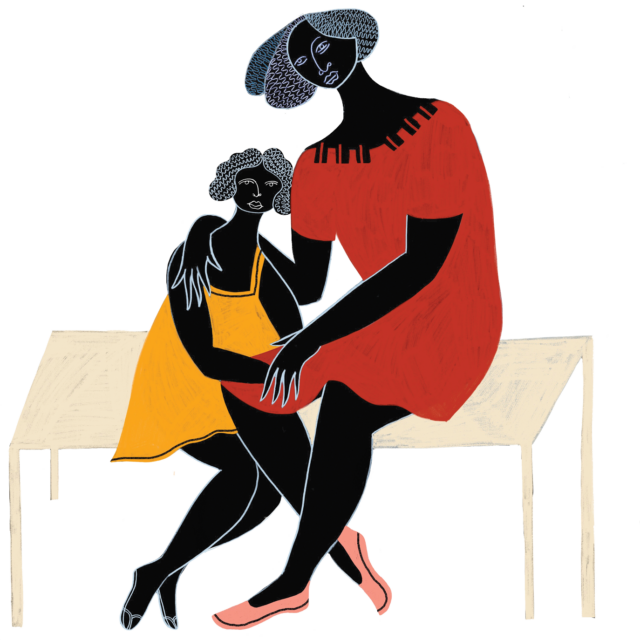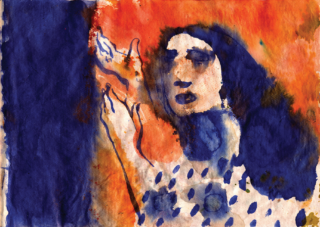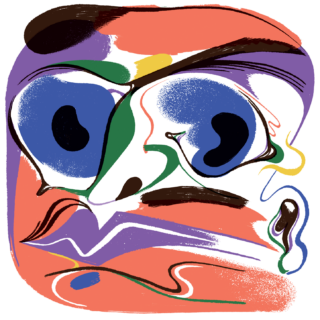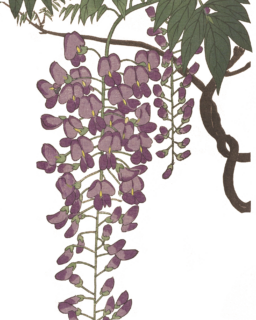
If you pass the asphalt lot overgrown with weeds, walk beyond the acorn-strewn nursery, and cross the field littered with picnic benches and barbecue grills, you will find yourself on Sligo Creek Trail. I have walked these woods for twelve months, watching the moths and the black hawks, the red cardinals and gray swallows, the glistening rocks that line the creek. I have regarded my reflection in the silver water—a thin silhouette, yellow-pale under the sun’s glow, different from what it used to be. In the Igbo language there are expressions that contemplate distance. Agbacha oso a guo mile. It is only after the race that the distance covered is calculated. And yet, I track my steps as I walk. I check my pedometer for the accumulation of each tenth of a mile.
In the Igbo language, there are expressions, also, that contemplate suffering. I have suffered these twelve months. I have wasted away, endured the kind of pain that does not allow one the enjoyment of life. Good health eludes me still. But there is nothing unique about my suffering. We have all suffered. Ejighi ahuhu etu onu. One must not boast of suffering.
The burning in my chest and abdomen has been as invasive as the pandemic itself. In the more recent months, the most profound pain has become the fear of a pain that refuses to end. I have questioned my purpose, questioned God, questioned life, questioned love, questioned death, questioned pain.
Pain like a scorching of skin and chest. I whirl inside of it, splashing, crawling, submerged in it, pain like a hot cauldron of water and I a crab. I am out of breath with it. Pain like a philosophy, a gift of sensation, a cruel reminder that I am alive.
The mind sickens itself in the body’s misery. If my mind senses a physical pain, is the pain really there? Does the intensity of the pain measure the intensity of the physical damage? If I believe that the body heals itself, is the mere belief enough to heal me? If I believe I am made in the image of God, am I, then, also a god? Will I, then, get to live eternally, as most gods do? Above all, where is God’s love in all of this? But then again, o bu mmuo ndi na-efe na-egbu ha. It is the deity that people worship that kills them.
What I am certain of each time I walk is that I don’t want to die before I die. And so I trudge along. Onye nwuru anwu si, “Ihe ibu, abugom. Ihe mbu ka ika abu.” The dead man says, “What you are, I have already been, but what I am, you are yet to be.”
Today, long before I reach my first mile, the pain becomes more intense than ever. Pain like coarse sand scattered inside my chest. Pain like shards of glass making tiny slits within the delicate walls of my esophagus. I crouch in the corner of the trail where the children’s pink-and-yellow chalk markings do not reach. Just then, my phone rings. Consy has never called before during my walk. She makes it a point not to interrupt what we agree is a sort of meditation. But today, she has somehow intuited my pain, and she has called to check on me. All my life, she has been checking on me.
I see her in my mind’s eye: my mother crouched in a praying position, praying over me. Consy seated on the edge of the sofa, face covered in tears, because she has been waiting for me. It is hours after my doctor’s appointment, and she has called and called, and I have not answered. She doesn’t know that my phone, not her daughter, is dead. Consy and I on our trips back home to Port Harcourt, to Lagos, to Ojoto, seated side by side on the airplane, in the car. “Ruth and Naomi”, my siblings still tease us. Consy seated on the faux fur chair in my living room, chatting riotously about her love for Patience Ozokwor, trying her best to distract me from my fears. Consy talking to her peace lily and Blue Angel plants as she waters them. “What wonders only a little sunlight and water will do!” Consy telling me about her infamous pound cake and meat pie recipes, telling me that she will make them for me as soon as I am better. “So hurry up and get better.” Consy singing to me in her high-pitched squealing voice. “Healing, Healing, Healing, Spirit, mind and body, mind and body, you are healed, through the wonder working power . . . Great Jehovah you are healed . . .” “Sing up!” she says to me. “There’s nothing more time-tested than the power of song to heal!” Then she holds a towel over my head above a bucket of hot water. “Breathe deeply,” she says. With so much hope that the remedy would be as easy as that.
I am forty years old. I have played the role of second mother, godmother, auntie, big sister, teacher, mentor, solid friend to many, but in that moment, by the side of the trail, I am a helpless child. And I feel Consy’s love profoundly. I feel it even in that small word: “Binto,” she says, her nickname for me. “Should I come pick you up?”
“No,” I tell her, because with her voice on the phone, the pain recedes. Agaracha must come back. She who wanders must eventually return. As if I were wandering toward her, I wander back to my home.
On my way, I see her reflection in my reflection in the creek. I am my mother’s daughter, and I must not let her down; I must live. I once read somewhere that in order to discover God you must descend into yourself, to your lowest self. You must experience the lowest points of your humanity. Low as I am, there is a lightness in my body that leaves me strong, stronger. I sense my self elevated, as with God on the highest of the mountaintops. A powerful heat descends upon my head, travels down my chest, my stomach, my legs, and exits through my feet. I feel its flow like the flow of scalding water. Heat becomes numbness becomes ecstasy becomes a complete and utter awareness of the sudden absence of pain. I have always been awake, but I am now more awake than ever. I hear Consy’s voice in the songs of the birds. I have smelled the late winter leaves before, and the blossoming of spring in the trees, but I have never smelled them so strongly as I do now.
The great gift of human life is consciousness. Awareness. Agbacha oso a guo mile. It is only after the race that the distance covered is calculated. Today, I have walked less than a mile on Sligo Creek Trail. But I have traveled far: into a more profound hope, after a terrible pain.


